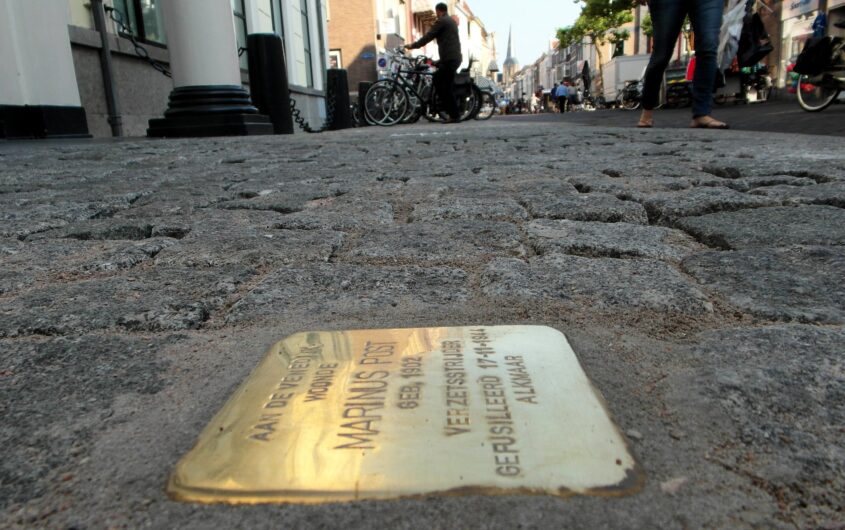
Joop van Dijk via Flickr
Some Small-Town Reflections on Catechism 2.0

Helmut Walser Smith
Vanderbilt University
Helmut Walser Smith is the Martha Rivers Ingram Professor of History at Vanderbilt University. His books, which have appeared in five languages, include German Nationalism and Religious Conflict, 1870-1914 (Princeton UP, 1995); The Butcher’s Tale: Murder and Antisemitism in a German Town (W.W. Norton, 2002); The Continuities of German History (Cambridge UP, 2008), and Germany: A Nation in its Time: Before, During, and After Nationalism, 1500-2000 (Liveright, 2020). He is also the editor of The Oxford Handbook of Modern German History (Oxford, 2011), among other works of collaboration. Over the years, his research has been supported by the NEH, the DAAD, the Volkswagen Foundation, the Humboldt Foundation, the American Academy in Berlin, and the John Simon Guggenheim Memorial Foundation. In 2023/24, he was an NEH Fellow at the Center for Jewish History in New York. Currently, he is writing a book whose tentative title is "Hometowns: Local Truth and Jewish Return in postwar Germany." It is about the myriad ways in which non-Jewish Germans and Jewish Germans in the diaspora worked on local memory, with the emphasis on the experience of a series of small towns and villages in southwest Germany.
When it came to German memory, the language of Dirk Moses’s initial contribution to what subsequently became the so-called Catechism debate was replete with references to a priestly cast, priestly sermons, inquisitions, heresy trials, and the like. From my own experience researching how small towns in southwest Germany had created local truth about the Nazi persecution of Jews in their communities, the characterization seemed widely off the mark. Where Moses saw secular clerics, I encountered (in the archival documents and in actual life) lay people—teachers, homemakers, village mayors, real priests and pastors, retired lawyers, mechanics, and even farmers—many of whom had given over a significant portion of their time and even their life to fight local memory battles, which often went on for years. The people who fought these fights were not just 68ers. And the fights did not just magically begin after the showing of the American miniseries Holocaust in 1979 or the Historikerstreit of 1986. They were older, deeper, more tenacious, more multifaceted than historians who only read the feuilletons can even guess. They were also transnational—with Jews once German but then living in Israel, the United States, Canada, Great Britain, and elsewhere taking part. This transnational lay movement was the deep undercurrent of German memory; it is what carried the crests of feuilleton debates on its strong back, to borrow Fernand Braudel’s famous metaphor. It did not automatically switch over to state-driven memory politics when Angela Merkel declared Israel Germany’s “reason of state.” The undercurrent is still there.
Local truth, it bears recalling, is not easily won. Compare the United States, where between 1877 and 1950, White people lynched more than 4,000 Black people across more than a thousand communities, most of them in the South. Attempts to erect local markers of these horrific events have almost always failed. Whether plaques, signs, or monuments, local people have defaced or defiled them, or simply torn them down. The National Memorial for Peace and Justice, the so-called “Lynching Memorial” in Montgomery, Alabama, has had to scrape dirt from the hallowed ground in the community where the lynching occurred; the curators of the nearby Legacy Museum have then stored the dug-up dirt in a glass jar and shelved these glass jars, now numbering in the hundreds, behind vitrines. Local truth, it should be clear from this comparison, is not a given; it must be fought for and protected. Broad-swath denunciations of it do not help.
It has been suggested that Germany’s memory culture is too focused on the Holocaust and therefore obscures the ability of Germans to regard the pain of others. But this culture is not a zero-sum game. When I analyze German communities and ask who has focused on the local persecution of Jews and who has focused on the persecution of others (the handicapped, Roma and Sinti, foreign slave laborers, Russian POWs, homosexuals), I find considerable overlap and a great deal of cooperation across different memory projects. In Germany’s memory culture, especially as it thickened in the 1980s and 1990s and continued thereafter, many different traditions—religious, leftist, preservationist, even conservative—came together. Now people on the left from the History Workshop movement work together—sometimes easily, sometimes less easily—with small town mayors from the CDU. In my experience, German memory is anything but monolithic; instead, it reflects stresses and strains in Germany’s public sphere.
In November 2023, I came to Germany to see how some of the towns I studied were dealing with the Hamas massacres and hostage taking of Israeli civilians on October 7 and the ensuing all-too-brutal Hamas-Israeli War. Far from being confronted with Germans whose compassion was only for Jewish Israelis, I encountered thoughtful and moving reflections on the magnitude of the tragedy that had befallen both sides, and with a naturalness, or lack of stridency, that took me aback. Yes, there was dissension—in both directions—among the memory workers I spoke with. But again, these are the stresses and strains of civil society. At the local level, this memory culture is a living, committed, contested world. Some have suggested that it is time for the 68ers to now step aside. The ones I know—now mostly sixty-eighters in a literal sense—would love to. What worries them is not the supposedly suffocating presence of the Holocaust in German memory, but the indifference to it of still younger generations. They are right to be worried.
This brings me to “reason of state” in an immigrant country. As is well known, in March 2008, German chancellor Angela Merkel gave a speech in Jerusalem in which she reiterated a “a special historical responsibility of Germany for Israel’s security,” and called it “part of the reason of state (Staatsräson) of my country,” meaning, “Israel’s security is never negotiable for me as German chancellor.” I do not find it illegitimate for the country that nearly exterminated the Jews of Europe to have a special relationship to the country that is their declared homeland and to make its security a matter of existential concern. By no means does this imply that Germany may not criticize Israel. Far from it, Germany usually votes against Israel at the UN or abstains in that body’s seemingly endless barrage of resolutions critical of Israel; in 2019, the then-German ambassador to the UN, Christoph Heusgen, likened Israel to Hamas, making him persona non grata in organizations, like the Simon Wiesenthal Center, that track anti-Semitism. Nor does it preclude harsh criticism of Israel in German media. But the doctrine of “reason of state” does make the Holocaust an inalienable part of what Germany is and even what being German is about. For some, this is itself a problem. Here the argument is that as Germany becomes an immigrant nation, its memory culture must necessarily bend to the interests of its increasingly diverse population.
But is this necessarily the case? Why does a German person of migration background not have to deal with National Socialism and the Holocaust? As an immigrant in the United States, it is obvious to me that if you talk about American history, you talk about slavery. If you come to the United States from Vietnam, you bring another history and another perspective with you. But you do not get to skirt the centrality of slavery to American history. Mutatis mutandis, the Holocaust in Germany. The thornier problems come with anti-Israel sentiment, and the hard to gauge slide from anti-Israel as a political ideology into something more recognizably anti-Semitic. A position that has little or no tolerance for anti-Semitism in Germany seems to me like a position that has little or no tolerance for racism in the country of which I am now a citizen.








